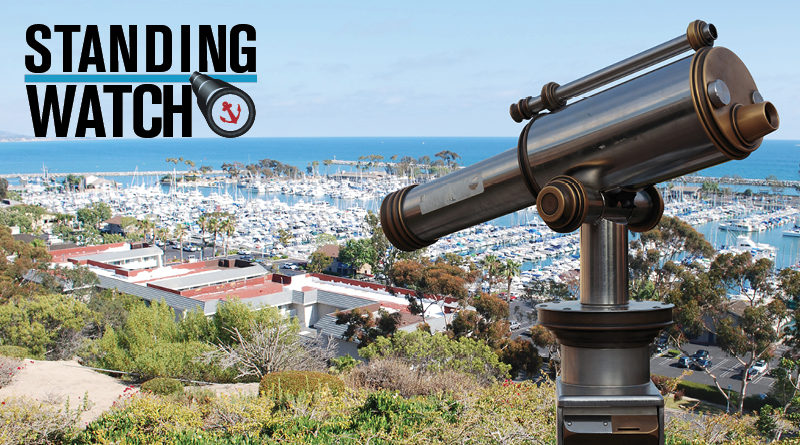Gov. Newsom signs bill to regulate drunk boating
SB 393, officially on the books, will allow boats operated by intoxicated individuals to be impounded for up to 30 days.
SACRAMENTO—A proposal calling for boats operated by intoxicated individuals to be impounded for up to 30 days was signed into law by Gov. Gavin Newsom on Oct. 8. Senate Bill 393 (SB 393) made it to Newsom’s desk after a previous attempt to have a similar proposal signed into law was actually vetoed under Jerry Brown’s administration.
State Sen. Jeff Stone, R-Riverside County, introduced SB 393 earlier this year; it was proposed in response to the death of Sara Margiotta, a 10-year-old who was killed on the Colorado River. Margiotta died after a drunken boater struck her family’s boat.
Stone had proposed Senate Bill 644 during the 2016-17 legislative session; the bill also called for vessel impoundment similar to SB 393, but Brown, as governor, vetoed the proposal. Brown said Stone’s proposal would not deter anyone from engaging in illegal activities.
So, here’s the $64,000 question, the 800-pound gorilla in the room: which governor was on point, Brown in saying a vessel impound law would not alter illegal behavior or Newsom’s endorsement of a similar proposal a few years later?
Before answering this question let’s review the factual background and legislative perspective about SB 393.
Stone positioned his vessel impound proposal as easy to digest and a necessary move to streamline California’s laws of operating an automobile or boat while under the influence of alcohol or drugs.
“SB 393 is a simple measure, but it shouldn’t matter if a person is killed by a car or a boat driving by someone under the influence of drugs or alcohol – the victim is still dead and the vehicle used in the crime should be subject to asset forfeiture,” Stone said in a released statement about Newsom’s signing.
The new law also calls for a boat to be subject to the same forfeiture rules as automobiles if the aquatic vessel was used when its operator was convicted of killing someone while under the influence of alcohol or drugs.
State law, prior to the signing of SB 393, allowed peace officers, lifeguards or marine safety officers to remove and store vessels from a public waterway in certain circumstances. The authority to remove vessels from public waterways was authorized by Assembly Bill 2175, which was signed into law in September 2018.
Marina owners in possession of an impounded vessel would not be liable for damages to the vessel while it’s being impounded.
Stone added his law proposal would provide clarity on impound rules for boating under the influence cases.
“While the law is clear about the rules for impounding a vehicle that has been used in the commission of a DUI the law is less clear on the rules for a boat that has been used in a Boating under the Influence (BUI) incident,” Stone said, according to a State Senate analysis of SB 393.
A Division of Boating and Waterways report published in 2016 stated there were 229 boating-related fatalities between 2012 and 2016. The study also found 35 percent of boating fatalities involved alcohol (where testing for alcohol was conducted).
“Even assuming half of the total number of boating deaths over a four-year period involved BUI where the defendant owned the boat, the total number of cases statewide would be 29 per year,” a State Senate analysis of SB 393 stated.
The California District Attorneys Association supported SB 393; there was no known opposition to the bill.
The State Senate approved SB 393 by a 40-0 vote on Sept. 3; the bill made it out of the Assembly on Aug. 30, with 71 members of the lower house voting in favor of the proposal (and zero votes against).
Margiotta’s family established a non-profit called Sara’s Way after the 2007 death. The organization, according to Stone, raises awareness “about the importance of boating safety and the dangers of drinking and boating.”



In this case, the storage burden would be shifted to marinas as opposed to an impound lot that would normally be used for cars. My hope would be that the marinas would be compensated appropriately. If the impound fees were forfeit by the owner, the marina would need a lien to protect their interests and facilitate disposal.
Addendum to the above: I see no such wording in the text of the bill that would protect the marina’s interest beyond indemnification.